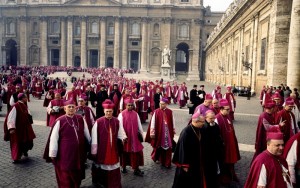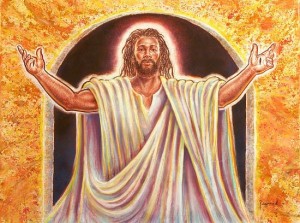It’s that time of year when many people’s thoughts turn to chocolate, egg hunts, bunnies and the resurrection.
And for many in the west, it is the first bank holiday weekend of the year – with four straight days off work – will also be appealing.
But Easter is that most confusing of dates – one that is never fixed and changes according to the lunar calendar.
Perhaps you’re planning a break with the family or a weekend visiting friends. Or maybe you’re just looking forward to spending a long weekend relaxing at home or wondering what the religious origins of Easter actually are.
Whatever your plans, you can get organised – and maybe learn a bit about Easter too –
So why does the date for Easter change every year
Easter is a Christian feast day – which are significant days in the life of Jesus Christ or saints. But unlike most days in the Christian calendar, Easter does not have a fixed date.
Easter feast days are moveable days, in that they don’t fall on a fixed date in the normal Gregorian or Julian calendars, which follow the cycle of the sun.
Easter instead is determined by the lunar calendar, which is based on the phases of the moon.
Easter is scheduled to fall on the first Sunday after the first full moon after the Spring Equinox around March 21.
The Spring, or March, Vernal Equinox is the moment the sun crosses the celestial equator – the imaginary line in the sky above the Earth’s equator – from south to north.
So, in Western Christianity, Easter will always fall between March 22 and April 25.
But could that change?
Campaigners want the next Government of the United Kingdom to help parents, schools and businesses plan their holidays by fixing the date of Easter.
Ministers may be asked to ensure it always falls between April 9 and 15. Lobby groups also claim the move would boost the economy.
In a letter to David Cameron, Keith Porteous Wood, of the National Secular Society, said: “The variation of the date of Easter causes significant and unnecessary inconvenience.”
Who decided when Easter should fall?

A council of Christian bishops was convened by Roman Emperor Constantine I in AD 325, the First Council of Nicea, which was Christianity’s first effort to get a consensus on what the church taught.
It was decided at this council that Easter Day should fall on the first full moon after the Spring Equinox, and that it should always fall on a Sunday to represent the day of Christ’s Resurrection.
What’s it all about really?

Easter celebrates the resurrection of Jesus after his crucifixion.
Christians believe Jesus was crucified on Good Friday and rose again three days later. The three days are known as the Easter Triduum.
The Easter season begins on Ash Wednesday – the first day of Lent.
Lent lasts 40 days – if you leave out the six Sundays in between Ash Wednesday and Easter Sunday – and is a time when Christians fast, or give up a particular food or vice. The fasting period is to remember when Jesus went into the wilderness and fasted for 40 days.
Ash Wednesday takes place after Shrove Tuesday, or Pancake Day, when rich foods like eggs are used up before Lent and the fasting period begins.
The Easter week, also known as Holy Week, and includes Maundy Thursday, which marks the Last Supper Jesus had with his 12 disciples.
What’s that got to do with chocolate eggs?

The eggs are a symbol of new life, used as a symbol of Jesus’ resurrection on Easter Sunday. They can also be seen to represent Spring and celebrate rebirth and reinvigoration after the harshness of winter.
This is why we see lots of chicks, lambs and other cute animals – it reminds us of the continuation of life.
And commercially it’s a massive deal – retailers and manufacturers love to get in on the holiday and persuade us to part with our cash by buying Easter eggs, cards and anything depicting bunnies.
This article has been edited to the context of abovewhispers.com. You can view the original article at http://www.mirror.co.uk/news/uk-news/easter-2016-key-facts-good-7613479

